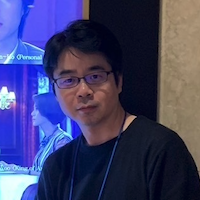Members

Project Assistant Professor
Chunhong Park
- Specialization :
- Linguistics, Korean- Japansese Contrastive linguistics
- Email :
- chunhongparkg.ecc.u-tokyo.ac.jp
Academic Background
PhD, Linguistics,The University of Tokyo
MA, Linguistics, The University of Tokyo
MA, Linguistics, Hankuk University of Foreign Studies (Korea)
BA, Liberal Arts (Japanese), Hankuk University of Foreign Studies (Korea)
MA, Linguistics, The University of Tokyo
MA, Linguistics, Hankuk University of Foreign Studies (Korea)
BA, Liberal Arts (Japanese), Hankuk University of Foreign Studies (Korea)
Biography
I was born in Seoul, South Korea, and majored in Japanese at university. Later I earned my degree from the University of Tokyo in Japan. Since I had been interested in Japanese culture from a young age, I naturally studied Japanese as part of my hobbies and came to Japan in 2007. In Japan, I had the opportunity to teach Korean as a part-time job and became involved in Korean language classes. It was only then that I began to notice the differences between Korean and Japanese in certain linguistic expressions that I had never questioned, as I had always taken Korean for granted as my mother tongue. Through this experience, I started to recognize the unique characteristics of Korean and became increasingly intrigued by the contrasts between Korean and Japanese.
My initial linguistic research interest was in counterfactual conditionals. Influenced by this, my primary areas of focus are tense, aspect, and modality, with an emphasis on contrastive studies between Japanese and Korean. More recently, I have also developed an interest in Chinese and am exploring the similarities and differences among Korean, Japanese, and Chinese.
My initial linguistic research interest was in counterfactual conditionals. Influenced by this, my primary areas of focus are tense, aspect, and modality, with an emphasis on contrastive studies between Japanese and Korean. More recently, I have also developed an interest in Chinese and am exploring the similarities and differences among Korean, Japanese, and Chinese.
Message to Students
Learning a foreign language is like embarking on a journey to a treasure island. Though the path may be challenging and at times tough, even if the journey feels endless, we can grow through the process of discovering new, uncharted worlds with hearts full of excitement and anticipation. Of course, along the way, we will encounter new people and experiences. Let’s set out on this adventure together!